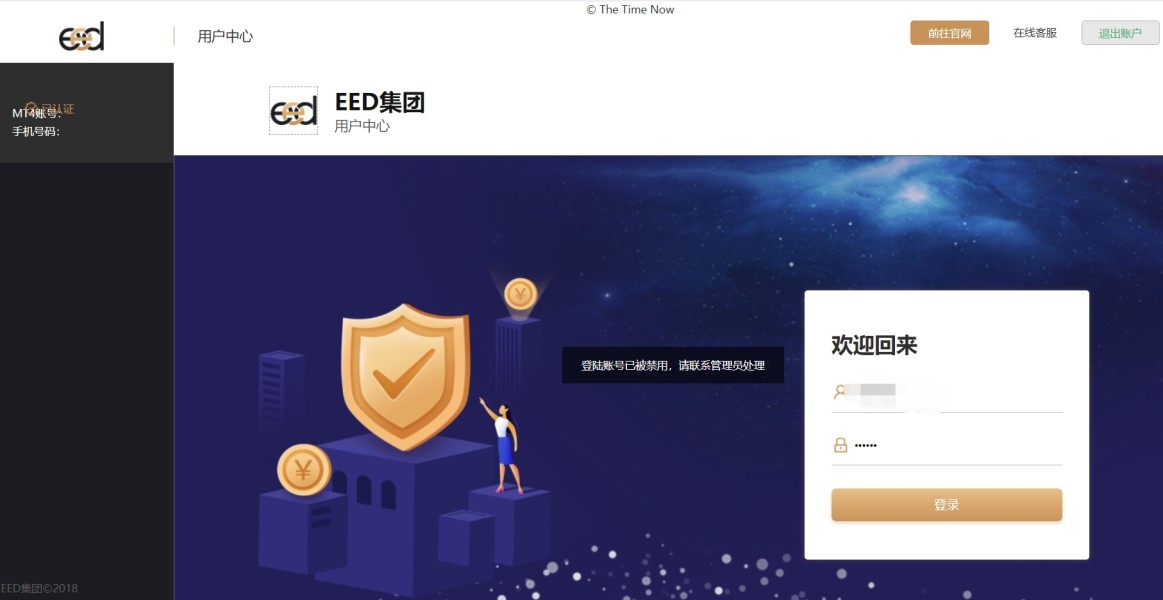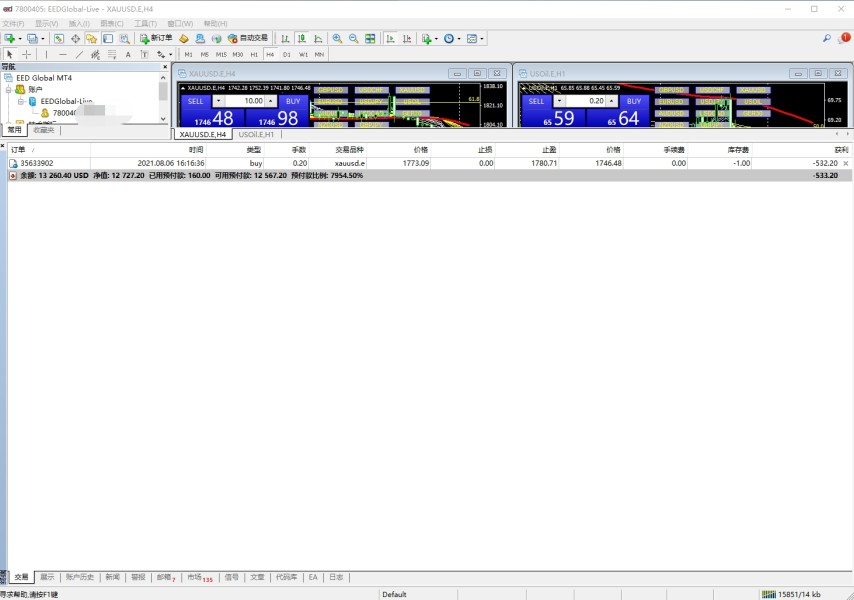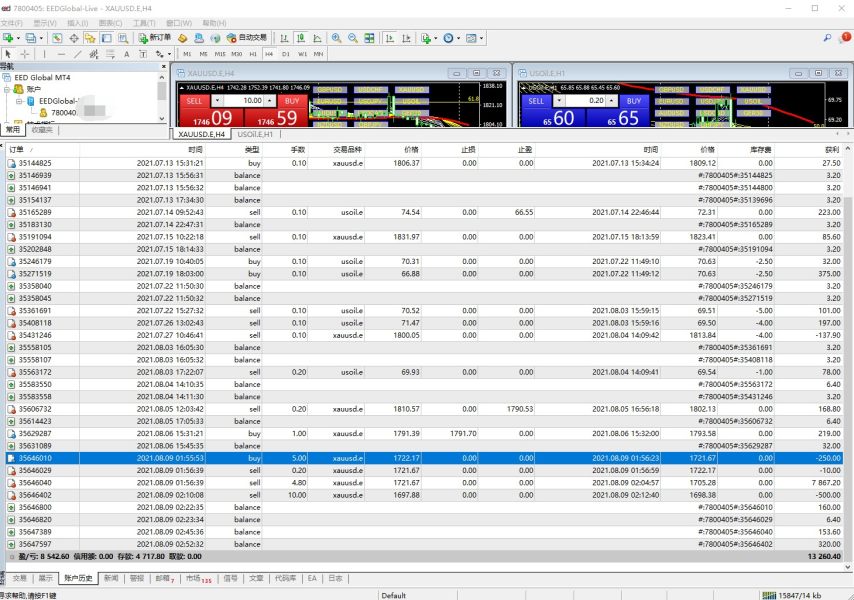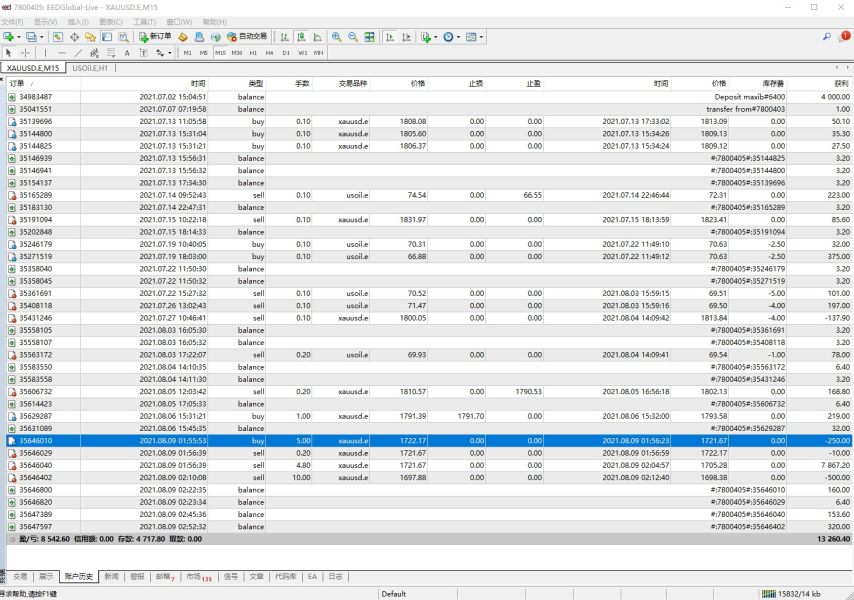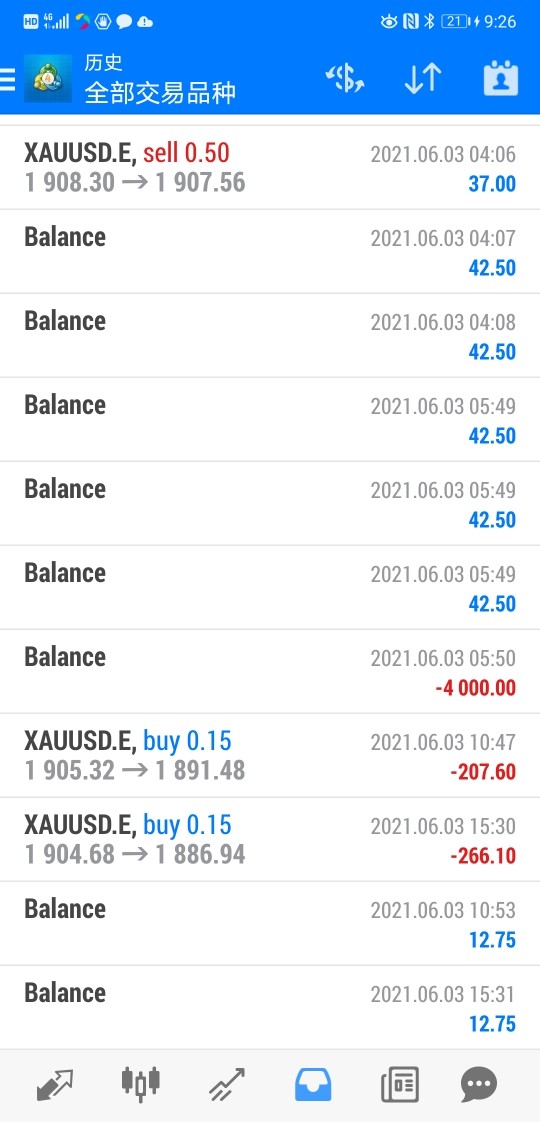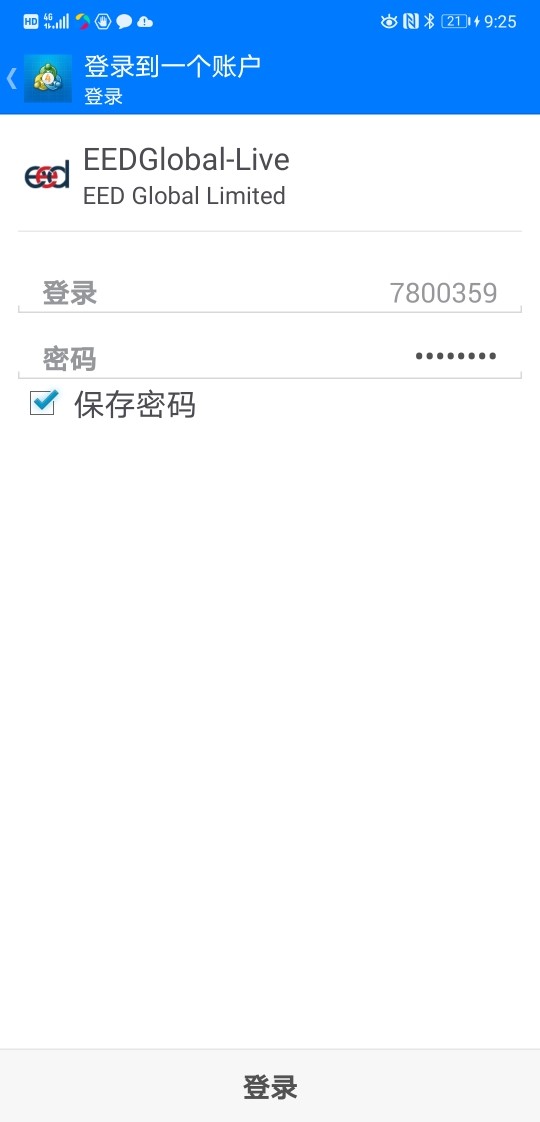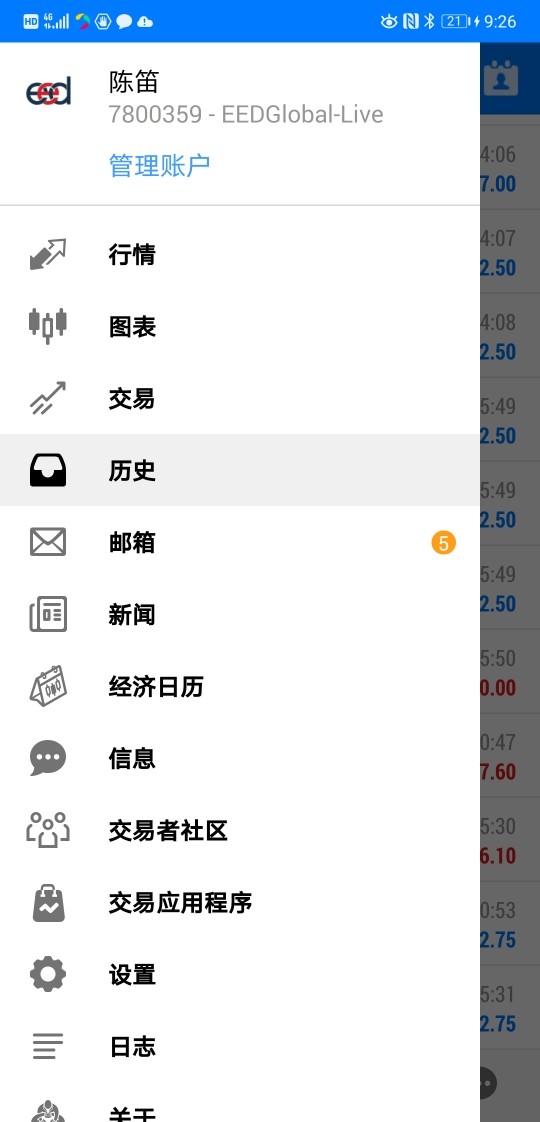EED 2025 Review: Everything You Need to Know
Executive Summary
The European Endowment for Democracy presents a unique case in financial services. EED was established in November 2012 as a joint initiative of EU Member States and European Union institutions. This eed review reveals an organization that operates as a private foundation with a specific focus on fostering democracy and freedom, rather than traditional forex brokerage services.
EED demonstrates significant operational capacity and institutional backing. The organization employs 65 staff members and 13 interns. EED's governance structure includes a Board of Governors composed of representatives from EU Member States and European Union institutions, supported by an Executive Committee and dedicated Secretariat.
The organization's primary mission centers on adding value and complementing EU and other democracy support programs globally. User evaluations show a mixed response with 9 exposure reviews containing both positive and neutral feedback. The overall assessment requires careful consideration of the organization's actual service offerings and regulatory framework.
EED's target audience appears to be organizations and individuals involved in democracy promotion and freedom advocacy. The organization does not focus on traditional retail forex traders seeking conventional brokerage services.
Important Notice
Potential users should be aware that EED operates across multiple jurisdictions. Regulatory frameworks may vary significantly between regions. The organization's establishment as a private foundation under EU auspices means that traditional financial services regulations may not apply in the conventional sense expected from forex brokers.
This eed review is based on available institutional information and limited user feedback. The absence of comprehensive regulatory disclosure for financial trading services may impact the completeness of this evaluation. Users should conduct thorough due diligence regarding the specific services offered and applicable regulatory protections in their jurisdiction before engaging with EED.
Rating Framework
Broker Overview
The European Endowment for Democracy was founded in November 2012. EED operates as an autonomous organization designed to support democratic initiatives worldwide. Unlike traditional forex brokers, EED operates as a private foundation backed by European Union Member States and institutions, with a clear mandate to foster democracy and freedom globally.
The organization maintains significant operational capacity with 65 full-time staff members and 13 interns. This indicates substantial institutional commitment and resources. EED's governance structure reflects its institutional nature, featuring a Board of Governors that includes representatives from EU Member States and European Union institutions.
This high-level governance arrangement positions EED as a serious institutional player in its field. The organization receives support from an Executive Committee and dedicated Secretariat. EED's primary business model focuses on providing support that adds value and complements existing EU and international democracy support programs.
However, the available information does not clearly establish EED as a traditional forex or financial trading broker. The organization appears to operate in the democracy promotion and institutional support sector rather than providing conventional trading platforms or financial services typically associated with forex brokers. This fundamental distinction is crucial for potential users to understand when evaluating EED's services.
Regulatory Jurisdiction: Available information does not specify traditional financial services regulation. EED operates as a private foundation under EU institutional framework.
Deposit and Withdrawal Methods: Specific funding and withdrawal procedures are not detailed in available source materials.
Minimum Deposit Requirements: Minimum deposit information is not provided in accessible documentation.
Bonus and Promotions: No promotional offers or bonus structures are mentioned in available sources.
Tradeable Assets: The range of tradeable financial instruments is not specified in source materials.
Cost Structure: Fee schedules, spreads, and commission structures are not detailed in available information.
Leverage Ratios: Leverage options are not mentioned in accessible documentation.
Platform Options: Trading platform specifications are not provided in available sources.
Regional Restrictions: Geographic limitations are not clearly outlined in source materials.
Customer Support Languages: Supported languages for customer service are not specified in available documentation.
This eed review highlights a significant information gap regarding traditional forex brokerage services. The gap suggests that EED may operate in a different capacity than conventional financial trading platforms.
Detailed Rating Analysis
Account Conditions Analysis
The evaluation of EED's account conditions faces significant limitations. Available sources lack detailed information about traditional trading accounts. Unlike conventional forex brokers that typically offer multiple account types such as standard, premium, or professional accounts, EED's documentation does not specify such offerings.
The organization's focus appears to be on institutional democracy support rather than individual trading accounts. Account opening procedures, minimum balance requirements, and account maintenance fees are not detailed in accessible materials. This absence of information makes it challenging to assess the competitiveness of EED's account conditions against industry standards.
Traditional forex brokers usually provide clear information about account types. They offer minimum deposits ranging from $10 to $10,000, and various account features designed for different trader profiles. The lack of information about Islamic accounts, demo accounts, or managed account options further complicates this assessment.
Specific details about account verification processes, documentation requirements, or account closure procedures are not available. Without this information, potential users cannot make informed decisions about EED's account offerings. This eed review cannot provide a comprehensive account conditions rating due to insufficient data in available sources.
Assessment of EED's trading tools and resources proves challenging. Limited information is available about traditional trading infrastructure. Conventional forex brokers typically provide comprehensive trading tools including technical analysis software, economic calendars, market research, and automated trading capabilities.
However, EED's available documentation does not specify such offerings. The absence of information about charting packages, technical indicators, or market analysis tools suggests that EED may not operate as a traditional trading platform. Educational resources, which are standard offerings from established forex brokers, are not detailed in accessible materials.
Webinars, trading guides, market commentary, and educational courses that traders typically expect are not mentioned in available sources. Research capabilities, including fundamental analysis, technical analysis reports, and market insights, are not specified in EED's documentation. The organization's focus on democracy promotion suggests that its resources may be directed toward institutional support rather than trading education and market analysis.
Information about API access, algorithmic trading support, or third-party tool integration is not available. Without this data, it's impossible to evaluate EED's technological capabilities for serious traders. The absence of mobile trading apps or advanced platform features further limits the assessment of EED's resource offerings.
Customer Service and Support Analysis
Evaluating EED's customer service and support capabilities is constrained by limited information. Available sources lack specific details about customer support infrastructure. Traditional forex brokers typically provide multiple contact channels including live chat, telephone support, email assistance, and sometimes social media support.
However, EED's documentation does not detail such customer service offerings. Response times, which are crucial for trading-related inquiries, are not specified in accessible materials. Professional forex brokers usually guarantee response times ranging from immediate live chat support to 24-48 hour email responses.
The absence of such commitments in EED's available information makes it difficult to assess service quality expectations. Multilingual support capabilities, essential for international operations, are not detailed in source materials. Given EED's European institutional backing, one might expect support in multiple EU languages, but this is not confirmed in available documentation.
Operating hours for customer support, including weekend and holiday availability, are also not specified. The quality of support staff training, escalation procedures for complex issues, and specialized support for technical problems are not addressed in accessible sources. Without user testimonials or service level agreements, it's impossible to evaluate the effectiveness of EED's customer support operations.
Trading Experience Analysis
The assessment of EED's trading experience faces fundamental challenges. Available sources lack detailed information about trading platforms and execution capabilities. Traditional forex brokers provide comprehensive data about platform stability, order execution speeds, slippage rates, and server uptime statistics.
However, such information is not available for EED in accessible documentation. Platform functionality, including order types, execution methods, and trading interface design, is not specified in source materials. Modern forex brokers typically offer advanced order types such as stop-loss, take-profit, trailing stops, and pending orders, but EED's platform capabilities remain undefined based on available information.
Mobile trading experience, which has become essential for contemporary forex trading, is not addressed in accessible sources. The absence of information about mobile apps, responsive web platforms, or tablet-optimized interfaces limits the evaluation of EED's technological offerings for modern traders. Execution quality metrics, including average execution speeds, rejection rates, and requote frequency, are not provided in available documentation.
These factors are crucial for assessing whether a broker can meet the demands of active traders. They are particularly important for those employing scalping or high-frequency trading strategies. This eed review cannot provide a comprehensive trading experience assessment due to insufficient technical and operational data in available sources.
Trust and Reliability Analysis
Assessing EED's trustworthiness and reliability requires careful consideration of its institutional backing and organizational structure. Traditional financial regulation information is limited in available sources. The organization's establishment as a joint initiative of EU Member States and European Union institutions provides significant institutional credibility, differing from typical forex broker regulatory frameworks.
EED's governance through a Board of Governors representing EU Member States and institutions suggests strong oversight mechanisms. However, these may not align with traditional financial services regulation. The organization's status as a private foundation autonomous from the European Union creates a unique regulatory position that doesn't fit conventional forex broker assessment criteria.
Fund security measures, segregation of client funds, and investor protection schemes that are standard for regulated forex brokers are not detailed in available documentation. The absence of information about deposit insurance, compensation schemes, or regulatory capital requirements makes it difficult to assess financial protection levels using traditional criteria. Transparency regarding financial statements, audit reports, and regulatory compliance is not addressed in accessible sources.
Professional forex brokers typically provide detailed regulatory disclosures, risk warnings, and compliance documentation that are not evident in EED's available materials. The organization's institutional nature and EU backing suggest credibility, but the lack of traditional financial services regulatory information limits the ability to assess trustworthiness using conventional forex broker evaluation standards.
User Experience Analysis
Evaluating user experience with EED proves challenging due to limited available feedback. The absence of detailed interface information in accessible sources compounds this difficulty. The mention of 9 exposure reviews with mixed positive and neutral feedback provides minimal insight into actual user satisfaction levels compared to comprehensive review databases typically available for established forex brokers.
User interface design, navigation efficiency, and overall platform usability are not described in available documentation. Modern forex brokers invest significantly in user experience design, providing intuitive interfaces, customizable dashboards, and streamlined workflows that are not detailed for EED in accessible sources. Registration and account verification processes, which significantly impact initial user experience, are not specified in available materials.
The complexity and duration of onboarding procedures, document requirements, and verification timelines that affect user satisfaction are not addressed in source documentation. Deposit and withdrawal experience, including processing times, available methods, and associated fees, are not detailed in accessible information. These factors significantly influence user satisfaction with any financial service provider but cannot be evaluated for EED based on available sources.
Overall user satisfaction metrics, retention rates, and common user complaints that would provide insight into the user experience are not available in accessible documentation. This limits the ability to provide a comprehensive user experience assessment.
Conclusion
This comprehensive eed review reveals significant limitations in evaluating EED using traditional forex broker assessment criteria. The European Endowment for Democracy appears to operate primarily as an institutional democracy support organization rather than a conventional financial trading platform. While the organization demonstrates strong institutional backing through EU Member States and institutions, along with substantial operational capacity, the absence of detailed information about trading services, regulatory framework, and user experience makes it impossible to provide definitive ratings across standard forex broker evaluation dimensions.
The mixed user feedback with 9 exposure reviews suggests some level of user engagement. However, the lack of specific trading-related information raises questions about EED's role in the forex market. Potential users should exercise caution and conduct thorough research to understand exactly what services EED provides and whether these align with their trading or investment needs.
Given the information gaps regarding regulatory oversight, trading conditions, and platform capabilities, this review cannot recommend EED for users seeking traditional forex brokerage services. Further clarification of the organization's actual offerings and regulatory status is needed before any recommendation can be made.
